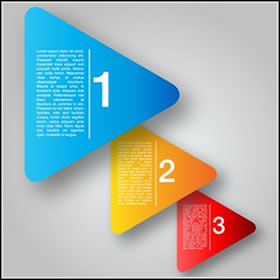Analyze the Numbers
Does the Project Meet Your Finance Objectives?
Before starting a home construction project, understand the numbers that will be required. You will need financing and other funds to keep the project on track. Run the analysis.
Page Topics:
What You Need to Know Up-Front
Understand what it takes to build your home:
from www.b4ubuild.com:
are you really ready to build your dream?
how much does it cost to build a new house?
You need to define the type of construction:
- Custom Home Construction:
where the construction is based on a custom design and individually built for the home owner.
This type of construction is a little more expensive and more owner involved. You will need to formulate the design that you would like.
- Production Home Construction:
where the construction is based on 3-4 different "production" designs for a particular neighborhood.
The homeowner may buy one of the plans from the builder and construct the house as specified. Some production plans allow for structural changes at additional cost.
Understand the financing requirements:
Can you afford building your home? Can you qualify for construction financing?
These questions are reviewed further in this file.
Define the project requirements:
- What kind of foundation do you need
- Where to find the lot and neighborhood
- What kind of home style are you looking to build
- You need to search or custom design your house plan
- You need to setup the construction specification sheet
- You need to find a contractor to price the project
- You need to get bank approval for the construction project
- You need to manage the project
- Stay within budget
- Close on the construction financing / mortgage loan
About Home Construction Financing
Tell Me About Home Construction Financing:
You will need to qualify for a home construction loan before meeting with a builder. The construction loan will have an upper limit that you can borrow based on your qualifying ratios, which will determine the expense of your construction project in addition to the up front money that will be needed:
Step5: see qualify for home construction financing
There are basically two types of loans involved:
- Construction Line of Credit:
This is a credit line that the lender setups on your behalf for the payment of contractors and supplies during the construction phase of your home.
Cash disbursements may vary by lender. Typically, the first disbursement buys the land and then successive disbursements will be made when certain phases in the construction project have been completed.
Most lines have terms of about 12-18 months, depending on the size of construction and area. Some lenders will offer an extension if needed, but often with up front penalties.
You will pay interest on the amount that you borrow during the construction phrase. The interest rate on construction lines are slightly higher than residential mortgage rates.
- Permanent Construction Loan (residential mortgage):
At the end of the construction phrase, the line closes and the amount borrowed is paid off with a mortgage loan of your choice.
Many lenders offer the combined construction line and permanent loan as a bundled product. There are advantages and disadvantages.
Step5: see our discussion on construction/permanent loans
If you are unable to obtain the combined construction/perm loan with the same lender, you will need to:
- first qualify for long-term financing (i.e., mortgage loan) with one lender and then,
- meet with a second lender for the construction line of credit — these lenders will typically extend credit once you have the permanent loan arranged.
Up-Front Payment:
Mortgage lenders expect owners to use a portion of their own money to finance their home construction. The standard percentage varies, but averages range from 5-10% or more of the home's future value (as determined by the lot, construction plans, and independent appraisal).
Some lenders now allow for lesser percentages — as little as 3-5%, provided that you have good outstanding credit.Existing homeowners often use the equity value of their existing home as required up-front money for construction loans. They may take out a home equity line of credit to pay the up-front money or a percentage of the estimated construction cost.
Note: IRS rules allow for an one-time distribution from qualified IRA accounts without the 10% penalty for acquisition of a home for first-time home buyers.
See IRS publication 590 for information:
www.irs.gov/formspubs/...We quote from the IRS web site:
401(K) PlansQuestion:
Can I withdraw funds penalty free from my 401(k) plan to purchase my first home?
Answer:
If you are less than 59 1/2 years of age, you cannot withdraw funds from your 401(k) plan to purchase your first home without being subject to a 10 percent additional tax on early distributions from qualified retirement plans.
However, depending on the rules for your 401(k), you may be able to borrow money from your 401(k) to purchase your first home. Your plan administrator should have written information about your particular plan that explains when you can borrow funds from your 401(k) as well as other plan rules.
References:
Topic 424, 401(k) plans
IRAs
Question:
If I can't withdraw funds penalty free from my 401(k) plan to purchase my first home, can I roll it over into an IRA and then withdraw that money to use as my down payment?Answer:
Yes, if you are receiving a distribution from a 401(k) that is eligible to roll over into a IRA and you meet all of the qualifications for an IRA distribution for a first-time home buyer. Your plan administrator is required to notify you before making a distribution from your 401(k) plan whether that distribution is eligible to be rolled over into an IRA.
To see if you qualify for a distribution to be used as a first-time home buyer, refer to Publication 590, Individual Retirement Arrangements (IRAs) (Including Roth IRAs and Education IRAs).
Discount Points:
Discount points are up front fees that lenders charge in order to offer you lower interest rates on your permanent construction mortgage.
A point equals 1 percent of the mortgage loan amount. For example, if the lender charges 2 points on an agreed loan amount of $100,000, your point fees will be $2,000.
Many lenders offer mortgage loans with zero points. These products generally carry a higher interest rate.Typically, each point that you pay on a 30-year loan lowers your interest rate by 0.125 of a percentage point. This reduction may vary by lender.
Compare rates vs. points calculation - from Dinkytown.net:
http://www.dinkytown.net/
Closing costs:
Closing costs are incurred costs associated with the closing your home construction loan. There could be closing costs for the construction line and additional costs for the permanent loan, especially if you use different lenders for each product.
These costs include lender fees, prepaid fees, title search, recording fees, surveyor's fees, attorney fees, and other closing-related fees.
Closing costs can average about 3-5% of the total construction cost, including points.
Cash Reserve Account:
It is highly recommended that you set aside a cash reserve before starting your construction project.
You may need this "extra" money for building deposits, cost overruns, construction changes and requested upgrades.There are too many "horror" stories of construction projects coming to a stop because of the lack of funds.
Step6: review Managing Construction Costs
Many homeowners will use the equity value in their existing home to open a home equity line of credit as their cash reserve. In the event that any extra cash will be needed for the constuction, they will draw upon their equity line account.
Caution: your existing home equity value may be needed to close on your residential mortgage. Make sure you run the numbers to determine how much equity can be set aside for your cash reserve account. It is best to have at least 20-25% of your home value locked away. Any excess equity can be used as your cash reserve.
Add it up to estimate your up
front payment and safety net
in the event your construction costs exceed
plan*:
Calculating the Numbers
Calculate how much house you can afford using the simple calculators below.
This will help determine what type of home to buy and where to look.
Please note that these calculations do not consider the true cost of a mortgage, which includes additional monthly costs for escrow and other related fees.
Calculating the Costs of Construction requires the pricing of the following items:
— construction materials
— construction labor
— permit fees
— decorative enhancements
— repairs due to remodeling
— cleanup
Your contractor should provide these costs when they submit a bid. Make sure you review the bid carefully to ensure that all costs have been included:
estimate construction costs in your area
- All required permit fees.
- Labor costs and total hours required. Make sure costs include payroll taxes and workers' compensation insurance.
- Tools and construction equipment.
- Safety equipment such as hard hats, dust masks, gloves, and goggles.
- Materials — includes lumber, plumbing fixtures, flooring, cabinets, paint, insulation, tile, countertops, heating, and ventilation units.
- Incidental repairs that may be required when tearing into the existing house structure.
- Cleanup including rental bins, removal service, and dumping fees.
- Decorative enhancements such as light fixtures, window coverings, and other specialty decor items.
- Subcontractor fees — fees from a specialized contractor such as an electrician.
- Other expenses — may include upgrades and changes.
These costs are best estimated when you supply the contractor a complete project specification plan:
Step4: view building spec planning
Tax Benefit of Home Construction
You can deduct the related interest portion of your mortgage loan payment from your taxes if you qualify.
You must itemize your deductions on Schedule A (Form 1040). You need to see your tax advisor to determine whether you qualify for interest-paid deductions
The following calculation shows the estimated "Effective Interest Rates" for each income tax bracket.
The "Effective Interest Rate" is the calculated annual interest rate that you will pay for the year after you deduct qualified home equity interest from your taxes.
view this "Effective Tax Table" calculator
Interest rate charges and other related costs to service your mortgage loan are generally tax deductible.
This will include points paid and other up front lending fees, if any. See your tax advisor for further information.
Need a financial advice from a CPA:
www.cpadirectory.com
Complete and file your own taxes using your PC:
www.quicken.com
IRS-related publications and forms for homeowners:
- Publication 936: Home Mortgage Interest
Deductions:
www.irs.gov/formspubs/...
- Download IRS1040, Schedule A: Itemized
Deductions:
www.irs.gov/pub/irs-pdf/i1040sa.pdf
Download Publication 936:
http://ftp.fedworld.gov/pub/irs-pdf/p936.pdf
Getting Yourself Pre-Approved
You may want to pre-approve your mortgage loan before starting your home construction.
You will be able to plan your construction knowing exactly how much you can afford. Also, if the builder knows that you have been pre-approved for financing, they will work to meet your financing objectives.
There is no obligation when you pre-approve for financing from a lender.
Nor does it obligate the lender to provide you a mortgage loan.
The pre-approval simply reviews your credit and income qualifications based upon the information supplied. The final approval will require verification of your financial status and home construction plan.
With a pre-approved mortgage, you can get most of the paper work completed
so that you can close on your home as soon as possible.
We can help get your pre-approval application started.
Qualifying for Credit
Lenders typically use two key criteria in qualifying you for credit:
1: Your Capacity to Repay
the Mortgage Loan
your capacity to repay your loan is analyzed
by two lending ratios:
i: The "housing ratio": calculated by dividing monthly housing expenses by your gross monthly income. As a basic rule, the housing ratio should not exceed 28%.
ii: The "debt-to-income ratio": calculated by dividing your fixed monthly expenses by your gross monthly income. As a basic rule, the debt ratio should not exceed 36%.
Calculate your own ratio: see our ratio calculator
2: Your Credit History
your outstanding credit report lists any payment
delinquencies that you may have had over the
past three years.
The report can be a factor in a lending institution's decision to approve or decline your mortgage application. You should review your credit report for any errors before applying for a mortgage.
Allow yourself about 2-3 months prior to the loan application for correcting of any errors that may be on your report.
You have the right under Federal Law to know what is in your credit report.
We invite you to visit our Credit/Debt Management Center for complete information about:
(links jump to our center at: www.SayGoodCredit.com)
— all about credit
— building and sustaining a good credit report
— what's in the credit report
— obtaining your credit report for review
— making corrections to your credit report
— budget management
— reducing your monthly expenses
Home Building Steps
| Helpful Tools | |||||||
|
|||||||
| Home Building Ideas for the Main Floor |
|||||||
|
|||||||
| What's in the News |
| For Your Rolodex | ||
|
||






